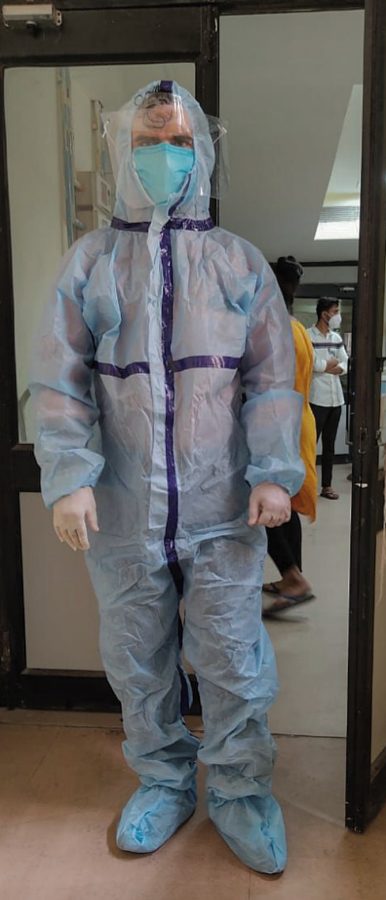The country of India has descended into their second wave of Covid-19, with cases rising faster than hospitals can manage. Hospitals in the country are struggling to get oxygen to patients, and rollout of the vaccine has slowed due to there not being enough doses available.
According to the BBC, there were multiple warnings that were raised showing the issues that would occur during a second wave. “In November, a parliamentary standing committee on health said there was an inadequate supply of oxygen and ‘grossly inadequate’ government hospital beds. “
“In February, several experts told the BBC they feared an impending ‘Covid tsunami.’”
“In early March, an expert group of scientists, set up by the government, warned officials about a more contagious variant of coronavirus spreading in the country—only for no significant containment measures to be taken, one scientist from the group told the BBC. The government has not made any comment on the allegations.”
India’s Covid-19 cases did fall under 20,000 in January and February, compared to the 90,000 in September of last year. With cases down, Prime Minister Narendra Modi opened all public gathering places. With Modi’s reopening of public places, citizens began not following social distancing and mask wearing.
India’s second wave has reached over 20 million infections, with almost 3.5 million people being actively treated for Covid-19. According to the BBC and NPR, India’s healthcare system is in a disastrous state, with hospitals not being able to care for all the people in the hospitals, not having enough supplies, and having a shortage of beds.
Virologist Dr. Shahid Jameel said to the BBC, “The government just did not see the second wave coming and started celebrating too early.”
India was unprepared for the second wave of cases, and oxygen is in high demand. Officials say that there is enough oxygen to meet the rise in cases, but transportation is the issue. Experts say something should have been done earlier.
With cases on the rise, shortage in oxygen and supplies, India has also expanded its vaccine eligibility to anyone over 18. The country is facing a shortage of vaccine doses, despite being one of the main manufacturers of the Astrazeneca/Oxford vaccine.
According to CNBC, “Only 30 million people have had the complete two doses of a Covid vaccine in India so far, government data shows. That’s a small number (just over 2 percent) of India’s total population of 1.3 billion people—although around a quarter of that total are under 15 years old and, as such, are not eligible for a vaccine yet.”
Different GoFundMe pages have been created to raise money to buy and send oxygen to India. According to NBC, a spokesperson for GoFundMe said, “that since April 17, fundraisers related to Indian Covid-19 relief have raised more than $6.5 million.” 60,000 donors from 106 countries, according to GoFundMe, have contributed to relief for India so far.
Travel from India to the U.S. has been restricted due to the rise in cases. Many other countries have banned travel from India including the U.K., Germany, Belgium, New Zealand, the United Arab Emirates, Singapore, Saudi Arabia, Iran, Oman, Kuwait, Indonesia, Malawi, the Maldives, Tanzania, the Netherlands, Thailand, and Italy.

